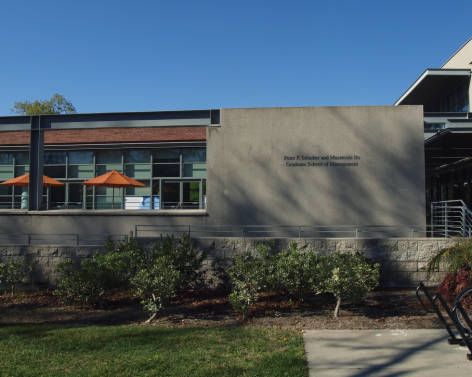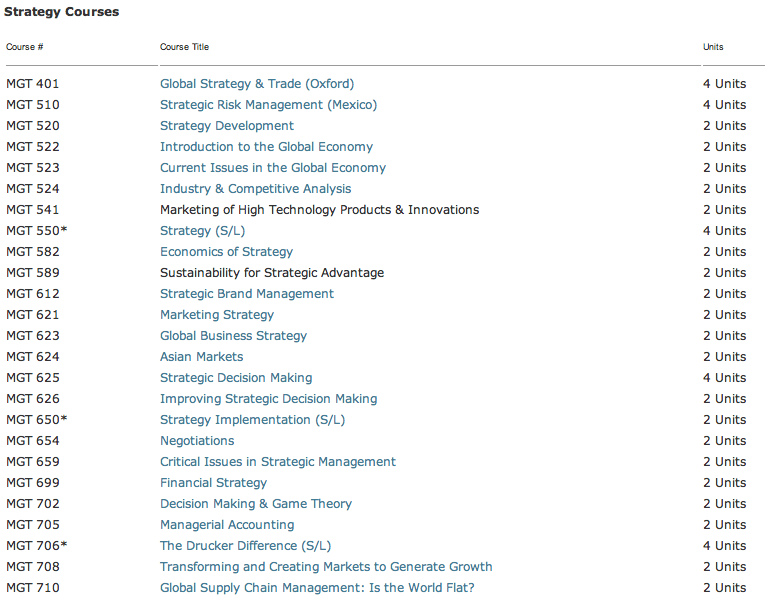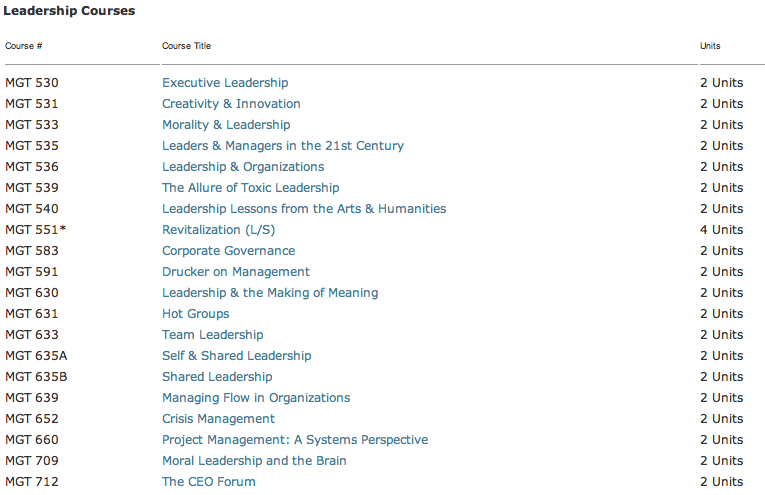
Drucker School of Management, Claremont Graduate University – Claremont, California

Jenny Darroch
History
Peter F. Drucker and Masatoshi Ito Graduate School of Management has a philosophy based on people, management as a human enterprise, and liberal art. The people at Drucker embrace this philosophy and treat others with respect, praise them individually and embrace them in the collegiate synergy that has been created within the academic community.
Drucker serves the purpose of making a difference in the lives of those with whom the institution serves. Its beliefs about management as a liberal art are the focus of the school’s educational philosophy by integrating perspectives from social and behavioural sciences, philosophy and humanities, history, technology, religion, and mathematics.
The philosophy brings together the complex realities of the world, diverse cultural, institutional, and intellectual backgrounds, and the school’s ethical responsibilities. The business school has a mission to achieve its purpose by developing and enriching the professional lives of students. It wants to enhance students’ abilities to think ethically and critically about complex issues, make proper strategic decisions, and lead others by inspiring the achievement of a common purpose. It aims to provide a practical, reflective learning experience that instills intellectual curiosity and learning skills, fostering a search for understanding openness, innovation, and change.
Courses
The MBA Programme focuses on the needs of the creative economy and integrates theory and practice within collaborative team environments. The goal of the programme is to develop future managers who will be able to make complex business decisions and lead and inspire others. The programme is two years and requires 60 credit hours of coursework. Eight of the courses are core courses (32 credit hours) and 28 credit hours are reserved for electives. The structure is flexible and focused on creating a foundational management core, developing ethical judgment and practice habits, and discovering innovative management techniques.
During the first year, students complete the foundational core of courses, which are listed below:
- Quantitative Methods
- Marketing Management
- Financial Accounting
- The Drucker Difference
- Organisational Behavior
- Corporate Finance
- Applied Operational Methods
- Strategy
- Macro Economics
- Managerial Accounting
During the second year, students take electives and may choose a concentration in the areas of:
- Strategy
- Finance
- Marketing
- Leadership
- Global Management
- Information Technology Management
Below is a diagram of the course structure, provided by Drucker:

The Professional MBA Programme is designed to provide the basic MBA experience, but is delivered through a “modified cohort” approach, making the structure much more flexible to accommodate the schedule of working professionals. It also contains professional assessments and executive coaching throughout and is completely customised for each individual. The programme is 52 credit hours and 24-28 electives are incorporated into the “Professional Pathway”, which is tailored to each professional’s educational needs. An opportunity to study abroad in the UK, Hong Kong, and Costa Rica is also included.
The Executive MBA Programme is flexible and allows executives to move at their own pace and build a class schedule around their personal and professional lives. The programme consists of three, 14-week semesters that are divided into six, seven-week modules. The programme can be started at any of the six entry points, and courses meet on weekday evenings and Saturdays, once a week, for three hours at a time. The classroom experience is structured in small class sizes and places a strong emphasis on leadership and strategy; the skills needed for senior managers. An extensive list of courses for both of these areas is offered to the students.
Below is a list of the core courses, strategy courses, and leadership courses, provided by Drucker:



General information
Explore the latest data on Business, Industry Leaders and Influencers, Organizations, Education, and Investors to stay informed and ahead.

Jenny Darroch
